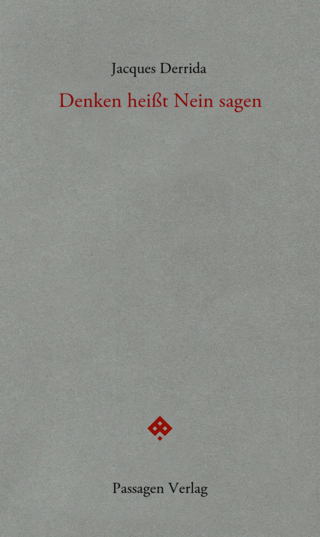
Research Handbook on Jurilinguistics
Edward Elgar Publishing Ltd (Verlag)
978-1-80220-723-1 (ISBN)
Chapters explore the theory of jurilinguistics investigating the features of a broad range of national discourses. Offering a unique perspective on the complex and dynamic relationship between language and the law, the impressive selection of contributors discuss the efficiency, flexibility and vulnerabilities of communication in legal settings. Anne Wagner and Aleksandra Matulewska approach the topic from a multidimensional standpoint, dealing with a myriad of topics, notably the general theory of jurilinguistics, the genres and characteristics of legal language, and the improvement of the quality of legal language.
This discerning Research Handbook will appeal to a variety of academics and researchers in law, translation, jurisprudence, applied linguistics, and rhetoric, looking to broaden their understanding of jurilinguistics as an interdisciplinary and cross-cultural operation. It will also serve as both a theoretical and practical resource for lawyers, legislators, lawyer-linguists, and legal translation specialists alike.
Edited by Anne Wagner, Research Associate Professor, Centre de Recherche Droits et Perspectives du Droit, équipe René Demogue, University of Lille, France and Aleksandra Matulewska, Associate Professor, Institute of Applied Linguistics, Adam Mickiewicz University, Poznań, Poland
Contents:
Foreword xvii
Prospects and retrospects of jurilinguistics 1
Anne Wagner and Aleksandra Matulewska
PART I JURILINGUISTICS AND ITS COMMUNICATIVE FLEXIBILITY
1 Researching the language of law 17
Marcus Galdia
2 Contributions of jurilinguists to law and its language: a threefold
research strategy 35
Jean-Claude Gémar
3 Critical approaches to comparative legal linguistics 52
Jaakko Husa
4 Legal pragmatics 70
Dennis Kurzon
5 Legal lexicography 88
Máirtín Mac Aodha and Tanja Wissik
6 Corpus linguistics, methodology of jurilinguistics 104
Stanisław Goźdź-Roszkowski
7 Two strata of flexibility in jurilinguistics 117
Anne Wagner and Aleksandra Matulewska
8 Legal interpretation and the relevance of corpora 130
José Manuel Aroso Linhares
9 Approaching (in)determinacy and ultimacy in interpretation 144
Daniel Green
PART II CONUNDRUM OF LEGAL GENRES
10 Legal genres in interdiscursive contexts 160
Vijay K. Bhatia
11 Genres and legal translation: A rationale and an agenda for legal
transgenre studies 180
Esther Monzó-Nebot
12 Legal languages’ features 193
Paula Trzaskawka
13 Directions, tools, and risks in the study of metaphor in law 206
Michele Mannoni
14 Plain legal language campaigns 223
Eamonn Moran
15 Jurilinguistics and co-drafting in Canada 239
Marie-Hélène Girard
16 The language of the court 251
James Archibald
17 Persuasive or coercive? Cultural and institutional factors behind
penalty-free laws in Japan and implications for management of COVID-19 264
Richard Powell
PART III VULNERABILITY OF INTERLINGUAL LEGAL COMMUNICATION
18 Interlingual legal communication: valleys, hills and mountains of social
inequality in legal translation and interpretation 282
Aleksandra Matulewska and Anne Wagner
19 Legal systems exposed: translation and vulnerabilities 301
Juliette Scott and John O’Shea
20 The day-to-day practice of jurilinguistics at the European Court of
Human Rights: challenges and constraints for translators 322
James Brannan
21 Minority issues in legal communication 336
Andrés M. Urrutia Badiola
22 Social issues in legal communication on the internet 348
Ruth Breeze
23 Translation hindrances and linguistic (im)possibilities to challenge the
Hungarian legal language 360
Réka Somssich
PART IV CULTURAL LANDSCAPE OF LEGAL TRANSLATION
24 Perpetual pendulum in law 374
Anne Wagner, Sarah Marusek, Aleksandra Matulewska
25 Cultural constraints of legal interpretation and legal translation 390
Mario Ricca
26 Understanding translated language in the legal context: the Chinese challenge 406
Deborah Cao
27 Legal translation and interpreting in China: Practices, theoretical studies
and future trends 419
Youping Xu and Wei Yu
28 Issues addressed in Arabic legal translation: a future perspective 437
Sonia A. Halimi and Rafat Y. Alwazna
29 Legal translation and court interpreting in Africa 452
Zakeera Docrat and Russell H. Kaschula
30 Translating the Civil Code of Louisiana into French and Spanish:
a jurilinguistic exercise 471
Olivier Moréteau and Mariano Vitetta
31 Comparison of key clusters of translated Korean laws and untranslated
American and British laws 486
Jeongju Yoo
Index
| Erscheinungsdatum | 17.10.2023 |
|---|---|
| Reihe/Serie | Research Handbooks in Legal Theory series |
| Verlagsort | Cheltenham |
| Sprache | englisch |
| Maße | 169 x 244 mm |
| Themenwelt | Geisteswissenschaften ► Philosophie ► Erkenntnistheorie / Wissenschaftstheorie |
| Recht / Steuern ► Allgemeines / Lexika | |
| Recht / Steuern ► EU / Internationales Recht | |
| Sozialwissenschaften | |
| ISBN-10 | 1-80220-723-6 / 1802207236 |
| ISBN-13 | 978-1-80220-723-1 / 9781802207231 |
| Zustand | Neuware |
| Informationen gemäß Produktsicherheitsverordnung (GPSR) | |
| Haben Sie eine Frage zum Produkt? |
aus dem Bereich


